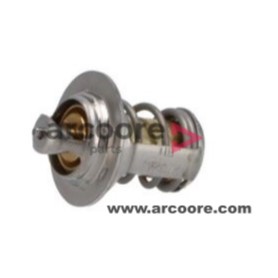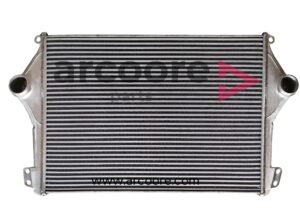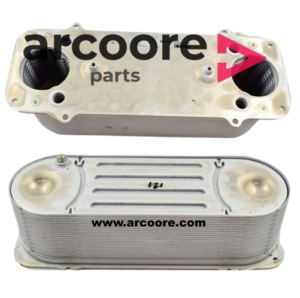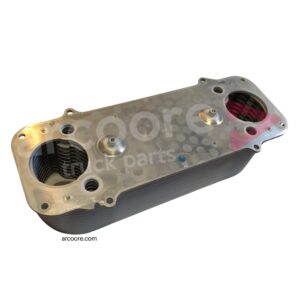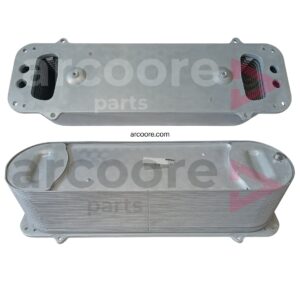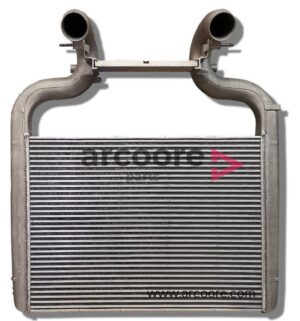Familiarize yourself with the offer of our store
The best quality consumables available at one address!
Categories:
Main Menu
Filters:
Intercoolers
Intercooler – charge air cooler
Arcoore offers intercoolers for all brands of trucks and other commercial vehicles as well as agricultural and construction machinery. We offer new and remanufactured intercoolers. Each part is covered by a 12-month warranty. Before shipment, we carefully protect each part against damage, as well as subject to detailed quality and technical control.
What is an intercooler?
The intercooler is the cooler of the air transferred from the compressor to the cylinder. The purpose of using these elements is to increase the efficiency of the drive unit. Nowadays, the use of an intercooler is already common in supercharged engines, whether it is mechanical or turbo charged.
How does an intercooler work?
The intercooler, or the charge air cooler, works in a similar way to the fluid cooler. The air leaving the compressor goes to a thick pipe, from where it is transferred to the radiator, which is cooled with atmospheric air (hence its location near the front bumper). The air that gives off heat in the intercooler finally goes to the cylinder. It is worth emphasizing that what makes an intercooler different from a liquid cooler is the lack of fans.
Intercooler – what gives?
The purpose of using an intercooler is to improve engine performance. How is this possible? As the temperature drops, air increases its density, and thus its mass volume. Cooler and denser air improves engine performance. Just ten degrees Celsius difference increases air density by about 3-5%, which translates into a similar increase in engine power. Commonly used in-vehicle intercoolers lower the charge air temperature by up to 40%.
Intercoolers malfunctions
Intercoolers are not shielded as this would significantly restrict airflow. Hence, they are exposed mainly to mechanical damage, which may be the result of, for example, a stone that flakes from under the wheels of the vehicle driving in front. Other faults are leakages that cause atmospheric air to enter the charge cooler and, consequently, the cylinder.
Symptoms of a damaged intercooler
A defective charge air cooler will cause problems with the engine operation, including jerking, difficulty accelerating or drop in power.
How to check if the intercooler is operational?
The basic step in assessing the efficiency of the intercooler is visual inspection of both the radiator itself and the air ducts leading to and exiting it. If the visual inspection is OK, you can dismantle the intercooler and look for signs of oiliness.
Intercoolers in the Arcoore offer
The offer includes regenerated and new intercoolers for all brands of trucks: MAN, DAF, Scania, Volvo, Renault, Iveco, Mercedes.
We also offer the regeneration of intercoolers for
- buses: Mercedes, MAN, Scania, Volvo, Solaris, VDL, Van Hool, Setra, Neoplan, Autosan, Bova, Irisbus, Iveco, Irizar, Renault, Solbus, SOR, DAF, Karosa
- agricultural machines: Case, Claas, John Deere, Deutz, Fiat, Hanomag, Kubota, Landini, Massey Ferguson, New Holland, Renault, Steyr, Ursus, Zetor,
- construction machines: Bobcat, Caterpillar, Cat, John Deere, Fuchs, Hanomag, Komatsu, Kubota, Liebherr, Manitou
- locomotives: PESA, NEWAG, Steadler, Skoda, Serii SM, Serii ST, MTU, Voight
- industrial machines,
-
wind turbines.
We provide a 12-month warranty for all Arcoore products. Before being dispatched, all products undergo thorough quality and technical control.

